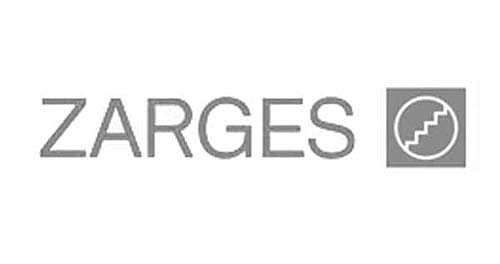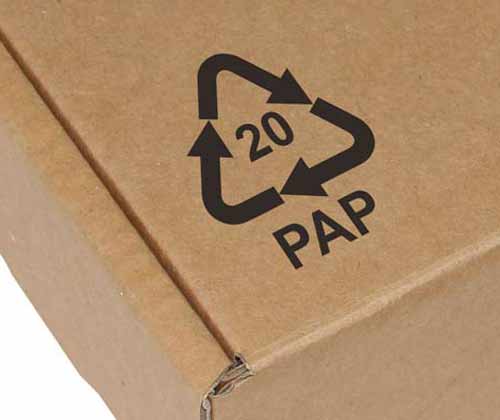
Legal requirements for automotive packaging
Whilst not exclusive to automotive, packaging regulations play a vital role in ensuring compliance, safety, and efficiency across the industry’s global supply chains.
For example, the Packaging (Essential Requirements) Regulations 2015 and Extended Producer Responsibility (EPR) obligations place duties on manufacturers to minimise packaging waste and design solutions with sustainability in mind. At the same time, sector-specific standards like VDA 4500 set out requirements for consistency, labelling, and handling in the movement of automotive parts.
At GWP Group, we have considerable experience of working with multi-national vehicle manufacturers through to smaller tier one and two suppliers, particularly with multi-trip supply chain packaging.

Important note:
This page aims to provide a comprehensive list of regulations that could potentially apply to automotive packaging. It also indicates which regulations may affect the packaging that you purchase or are looking to source from GWP Group, and areas where we are currently unable to assist.
Please also note that, as all scenarios and applications vary, not all regulations are likely to apply to all automotive packaging solutions. Please get in touch with us and/or speak with the appropriate regulatory body for further clarification if needed.
The information provided on this page was last updated on 6th November 2025, and is correct to the best of our knowledge at the time of writing. Due to the evolving nature of the regulations detailed on this page, our packaging experts will periodically review and update this content as required.
Table of contents
The following regulations apply to automotive packaging in the UK. Please note this list is not exhaustive, and is subject to change as regulations are updated, introduced or replaced. Not all regulations apply to all forms of automotive packaging.
- The Packaging (Essential Requirements) Regulations 2015
- Extended Producer Responsibility (EPR)
- VDA 4500 – Automotive Packaging Standard
- IATF 16949 – Automotive Quality Management System
- Carriage of Dangerous Goods Packaging Certification
- UKCA Marking (Packaged Automotive Products)
- UN3480/UN3481 – Lithium Battery Packaging
The Packaging (Essential Requirements) Regulations 2015
The Packaging (Essential Requirements) Regulations 2015 are a set of UK rules that applies to all packaging, including taht used for automotive parts and spares, states that:
- Packaging must be minimised, recyclable, and free from heavy metals.
- Encourages eco-friendly design principles in all packaging.
- Applies to both retail and transit packaging.
GWP Group’s approach is to always minimise material use and aid recyclability for end users. We place significant emphasis on eco-friendly design, as evidenced by our Starpack Awards (including the Green Star award in 2018). This is in addition to a wide range of sustainability initiatives throughout our business.
We do not use any heavy metals or other dangerous chemicals/materials in the packaging we manufacture.
More information
Extended Producer Responsibility (EPR)
The Extended Producer Responsibility (EPR) is legislation that requires producers to report and pay for packaging waste based on the type and volume they use.
For example, automotive parts manufacturers using packaging must track material use, recyclability, and labelling (e.g., “widely recycled” icons). This legislation applies to product and shipping packaging.
GWP Group can help our customers comply with their legal responsibilities under EPR legislation by supplying detailed product and usage statistics. Please note that we are not able to submit EPR figures/returns directly for our customers; doing so remains their responsibility. GWP can, on request, print any applicable logos or legal information on our customers’ packaging, providing this information is supplied to us in print-ready artwork files before manufacture. GWP cannot take responsibility for any omission or inclusion of incorrect information on our customers’ packaging.
More information
VDA 4500 - Automotive Packaging Standard (Germany - widely used in the UK)
The VDA 4500 Automotive Packaging Standard defines the standard dimensions, tolerances, and handling properties for load carriers, especially reusable containers in automotive logistics.
- It specifies common small load carriers and foldable containers for safe stacking and transport.
- It supports returnable packaging systems, which are crucial in OEM Tier-1/Tier-2 logistics.
- It ensures parts packaging integrates seamlessly with automated material handling systems.
GWP Group can design, manufacture and supply returnable packaging that complies with VDA 4500 standards, upon request.
More information
IATF 16949 - Automotive Quality Management System
IATF 16969 is an automotive-specific quality management system standard built upon ISO 9001, governing the entire supply chain, including packaging processes.
- It requires validated packaging procedures to ensure parts are protected and traceable.
- Any packaging anomalies must be included in quality control and continuous improvement areas.
- It ensures packaging does not introduce defects or delays in production.
GWP Group is not accredited to IATF 16949. However, the similarities with ISO 9001 (with which we are accredited) allows us to work towards the applicable requirements if required.
More information
Carriage of Dangerous Goods Packaging Certification
The Carriage of Dangerous Goods Packaging is a certification that requires UK-domiciled packaging of dangerous goods to be certified and managed via the VCA’s Dangerous Goods Office.
- Certification is required for automotive components containing hazardous materials (e.g., airbags with pyrotechnic initiators, batter systems, etc.)
- Packaging must bear valid UN-type markings and have up-to-date VCA approval.
- Certification ensures legal compliance and safe handling throughout transit.
Whilst GWP Group can supply a range of suitable packaging, we do not currently hold Carriage of Dangerous Goods certification. We can assist customers however in ensuring their packaging meets relevant requirements. This includes the printining of applicable logos and markings where these are supplied by our customers. Please note that GWP cannot offer advice on specific labelling requirements.
More information
UKCA Marking (Packaging Automotive Products)
The UKCA Marking is the post-Brexit conformity marking for goods placed on the UK market, replacing the CE mark. The new rules state that:
- Packaging must display the UKCA mark (or accompanying documentation) for regulatory compliance.
- It applies to packaged automotive parts where safety and conformity are assessed per UK law.
- It is especially critical for automotive parts entering the UK supply chain from abroad.
Packaging that GWP Group manufactures/supplies can carry the appropriate UKCA markings where our customers have supplied the applicable information.
More information
UN3480/UN3481 - Lithium Battery Packaging
UN3480 and UN3481 are the dangerous goods classifications for lithium-ion batteries transported on their own, without being installed or packaged with equipment.
- It requires UN-approved packaging that has been tested for drops, vibration, pressure, and thermal conditions.
- The batteries must be protected against short-circuiting (insulating terminals and preventing movement).
- The packaging must carry the Class 9 hazard label and the lithium battery handling mark.
The VCA Dangerous Goods Office manages certification in the UK.
GWP Group can supply aluminium battery boxes suitable for transporting lithium batteries. However, this is typically for returnable applications, or where the lithium battery is relatively large, expensive, a prototype, or damaged. GWP Group do not currently supply corrugated packaging for automotive applications involving lithium batteries. Our parent company, Macfarlane Group, may be able to assist with specific requirements.
More information
Quotes, technical info and advice
Speak with our automotive packaging experts
The information on this page has been collated, checked and approved by several of our packaging experts:












































